- Home /
- Environment
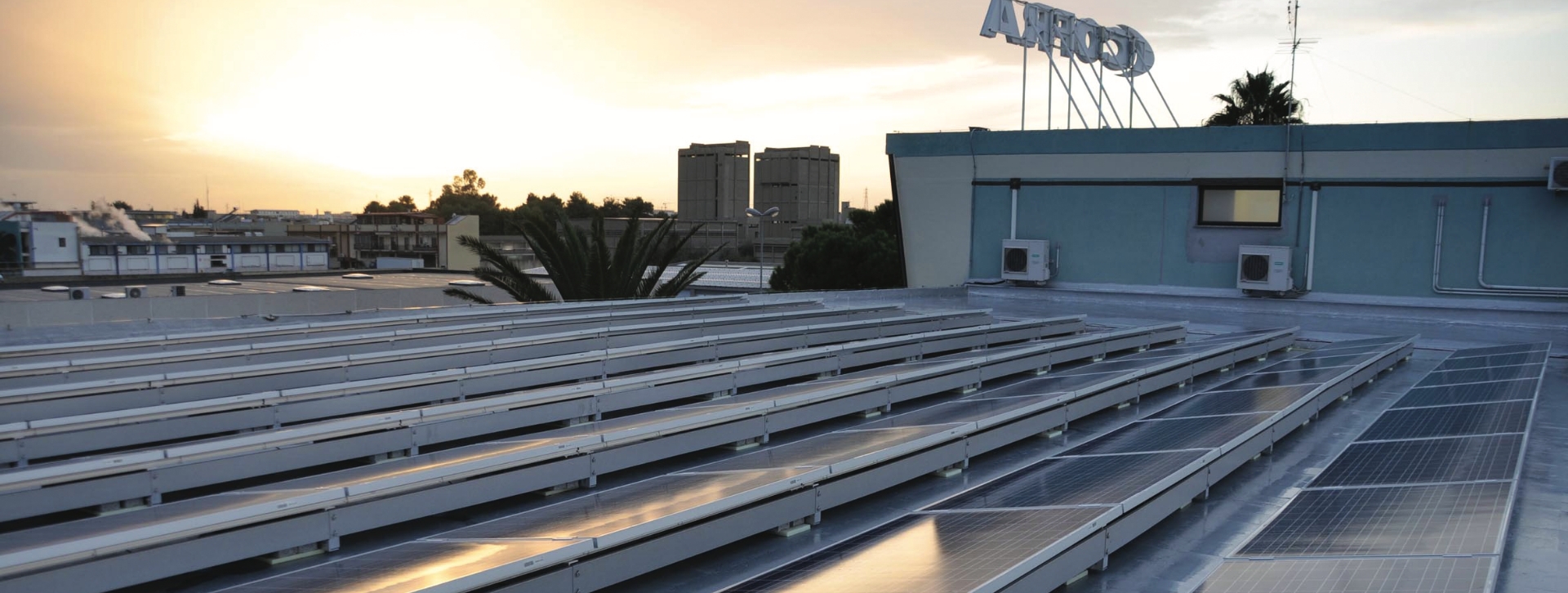
TOWARDS A SUSTAINABLE FUTURE
Envisioning an economic system that is increasingly virtuous and competitive, where ethics and economics are combined, has led the company over the years to develop activities and initiatives in support of the environment.
Reducing the Ecological Footprint
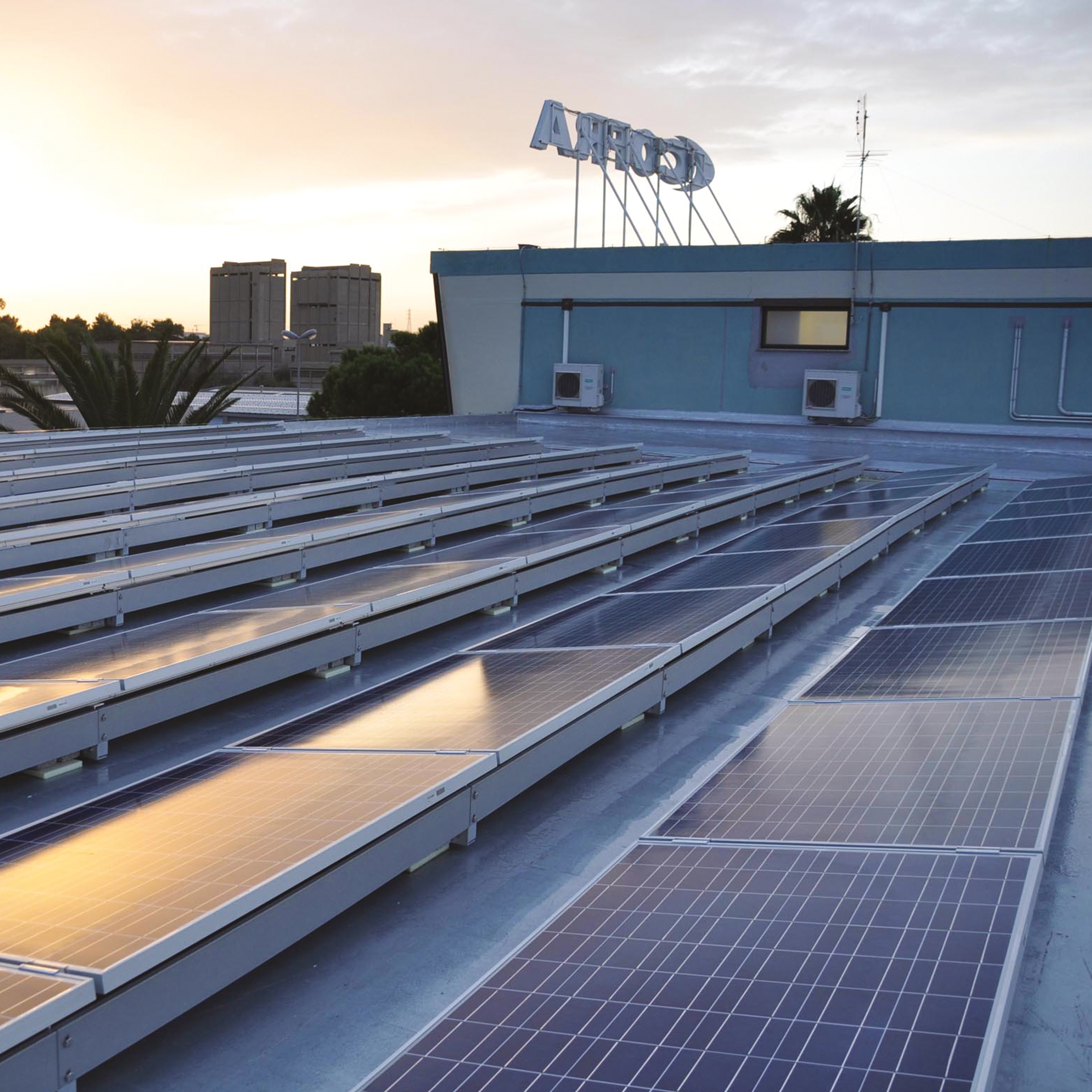
Since 2011, COFRA has been producing clean energy through a photovoltaic system with a total nominal power of around 1.3 MW. The total area is approximately 10,000 m², much larger than a regular soccer field for international matches. The photovoltaic system covers about 60% (1,500,000 kWh) of the company’s annual energy needs, which is equivalent to the annual electricity consumption of about 500 households. We avoid emitting over 800 tons of CO₂ into the atmosphere each year and about 16,000 tons over twenty years.

Since 2011, COFRA has been producing clean energy through a photovoltaic system with a total nominal power of around 1.3 MW. The total area is approximately 10,000 m², much larger than a regular soccer field for international matches. The photovoltaic system covers about 60% (1,500,000 kWh) of the company’s annual energy needs, which is equivalent to the annual electricity consumption of about 500 households. We avoid emitting over 800 tons of CO₂ into the atmosphere each year and about 16,000 tons over twenty years.
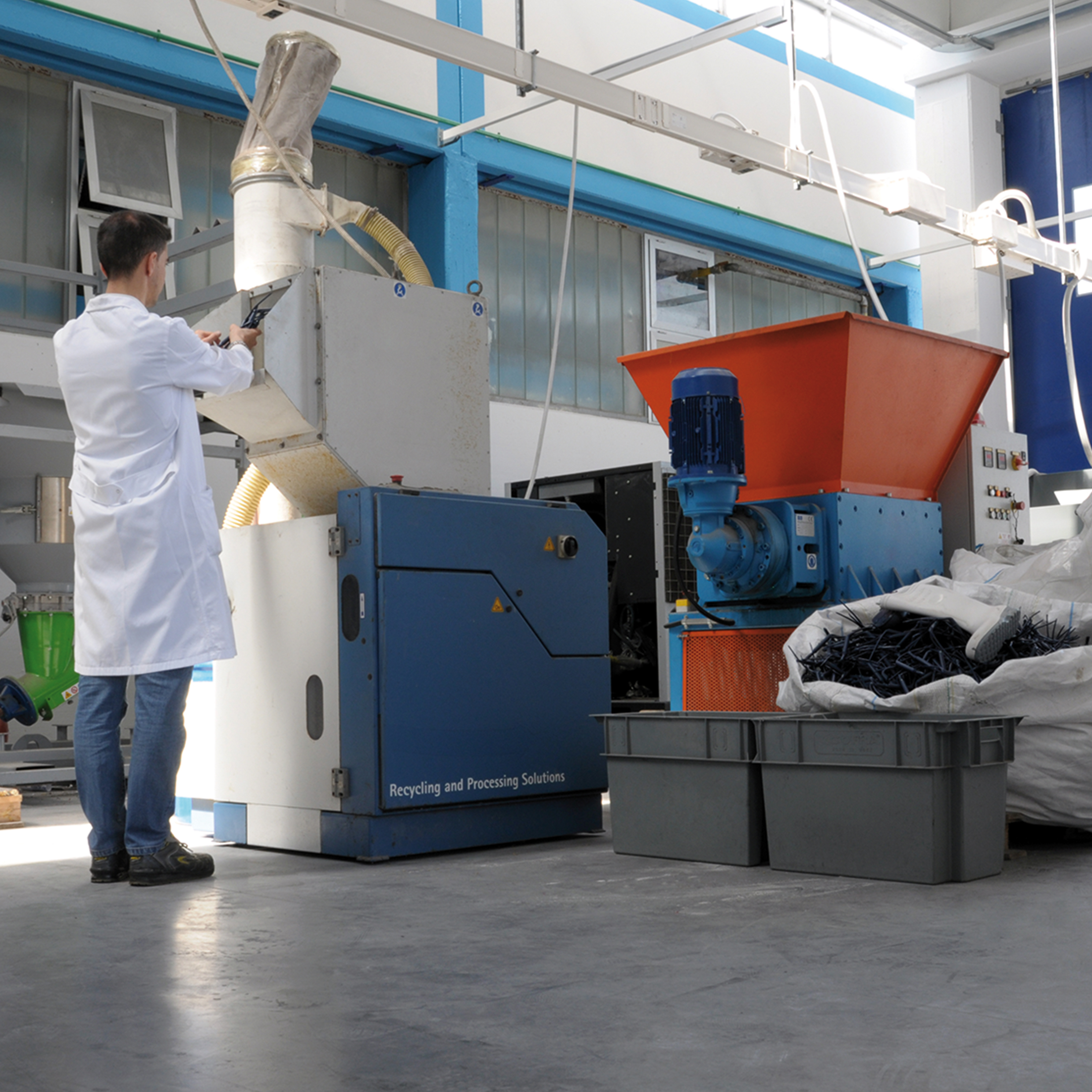
The ongoing research for environmental protection continues. The company’s chemical laboratory is always working to find the best solutions to minimize the disposal of waste from production, which often has very slow biodegradability. A significant portion of our footwear products is now made with recycled rubber in the soles, enhancing its already excellent mechanical properties. We design the upper parts of our footwear to minimize production waste. We have gradually introduced more and more clothing items in our collection made from recycled and OEKO-TEX® certified fabrics, ensuring non-toxic and eco-sustainable production processes. In some of our clothing items, we use MODAL®, a wood fiber alternative to synthetic fibers, produced through a sustainable and clean supply chain.
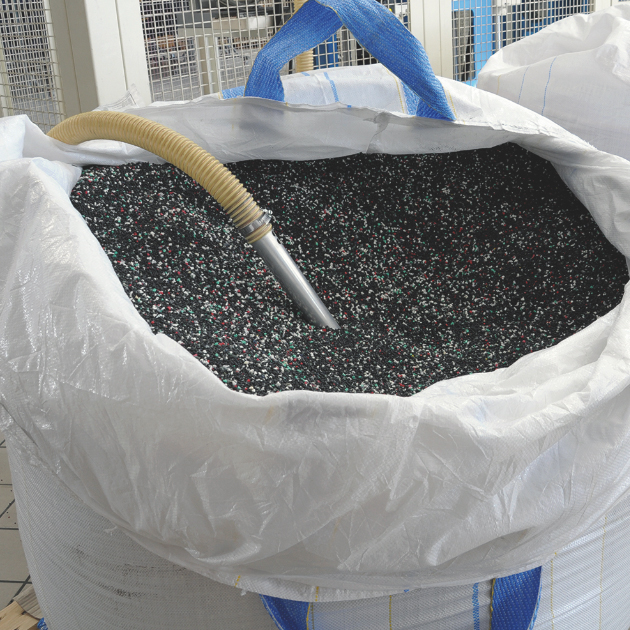
WASTE FROM SHOE SOLE PRODUCTION PROCESSSince the '80s, COFRA has been recycling waste from the production of thermoplastic materials for shoe soles. In 1995, COFRA started an installation that allowed the recovery of production waste (including thermosetting material) to produce one of our base materials for soles. This installation has remained one of the few in all of Europe and has achieved an excellent objective in avoiding the landfill disposal of over 2,000 tons of polyurethane waste, which has very slow biodegradability. Since 2012, a new activity has begun to recover and use production waste for sole production. In collaboration with partners and suppliers who have shown sensitivity to environmental issues, after a period of possible study and testing, this recovery activity is now routinely implemented. An important chemical-physical-technological development has led to the creation of a new formulation of materials for soles, which not only uses the recovery of sole materials but also allows the use of a considerable amount of thermosetting materials, which due to their nature are much less prone to recovery. This process is naturally included in the production processes, bringing a sustainable recovery of production waste that continuously increases.WASTE FROM PVC BOOT INJECTION PROCESSCOFRA recovers 100% of the production waste from PVC for its boots.
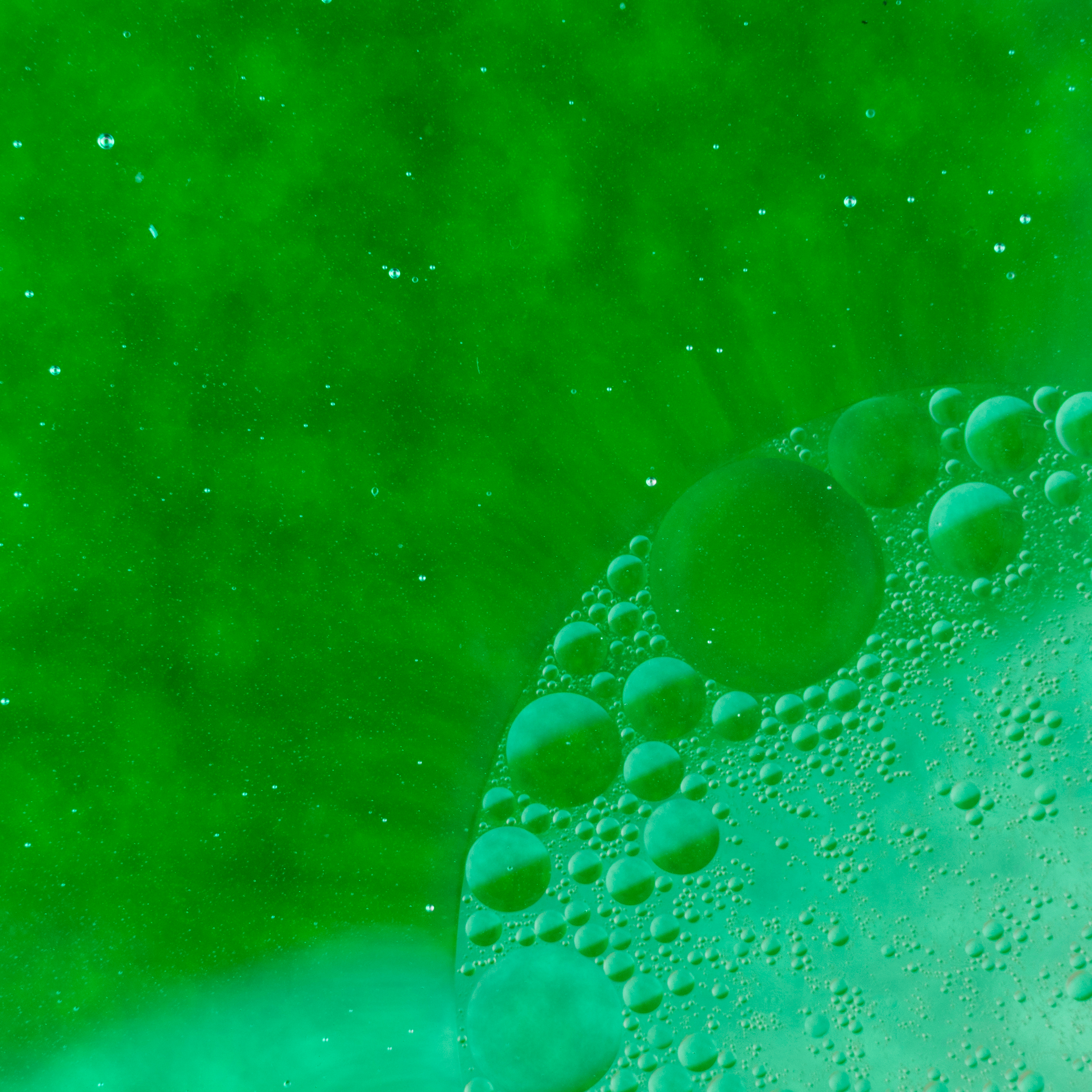
The formation of shoe soles with polyurethane requires the use of releasing agents: for several years, COFRA has eliminated all toxic and hazardous substances to humans and the environment. After the injection process, the molds require a cleaning phase: COFRA first replaced chemical products with physical methods, and then switched to carbonate, a completely 'green' solution. We use water-based adhesive for constructing the uppers of our footwear, which is environmentally harmless. A recent addition to our production is a fully automated rubber sole bonding system at our Albaco Shoes facility in Albania. This new system allows us to use one-third of the glue previously required in the bonding process. The system has been operational since the second half of 2024.
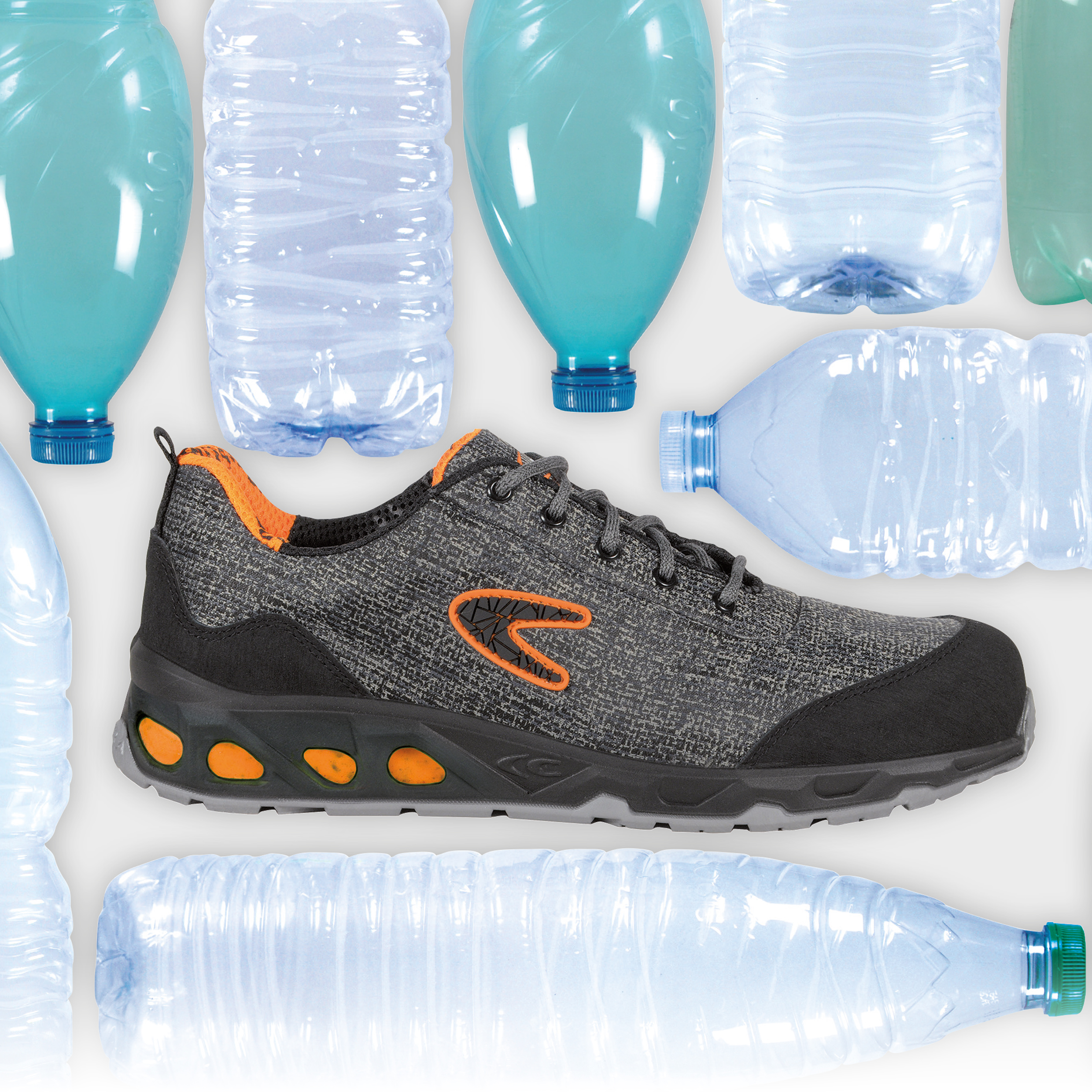
In 2019, we introduced the GREEN-FIT line, a groundbreaking innovation in the global safety footwear market: the first safety shoes made from recycled materials.

Reduction, reuse, and recycling of packaging materials. COFRA replaces packaging materials with more sustainable alternatives. We use recycled cardboard boxes, recycled plastic wraps, innovative-shaped labels to avoid plastic tags. We reduce packaging materials by avoiding labels hanging from our shoes. We give our packaging boxes a second life by reusing them for shipping our goods.
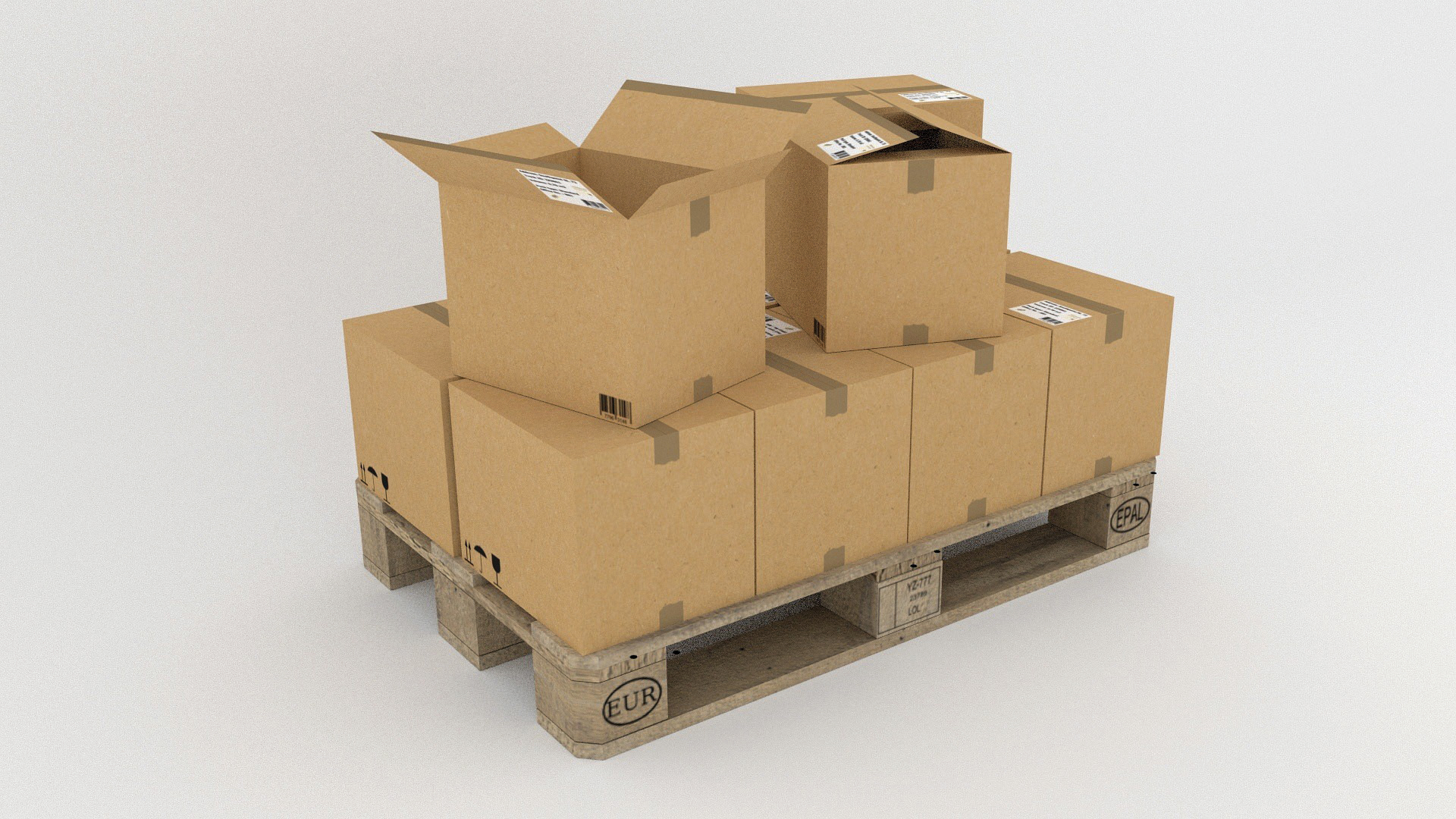
We give new life to packaging cartons by reusing them for shipping our products. All packaging materials from production and/or purchases are repurposed for packing during order fulfillment. Pallets are essential for transporting and storing goods, but their intensive use often compromises their stability and integrity. At COFRA, we have set up a collection point for damaged pallets and trained staff to refurbish them by replacing worn-out components. This process restores the pallets to optimal condition, allowing them to be reused, minimizing waste, and reducing the amount of industrial waste generated.
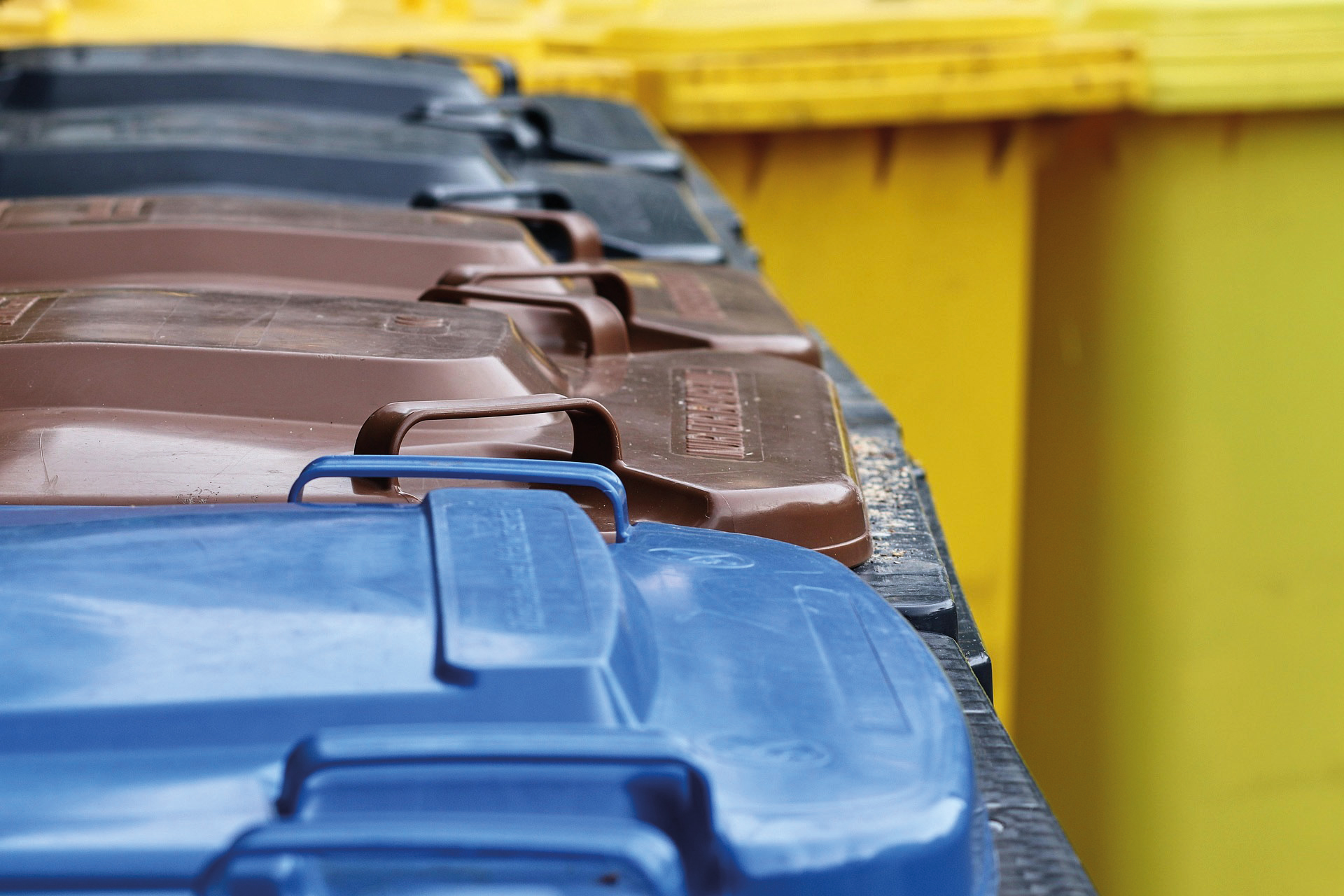
Through strict waste separation, we ensure that all paper, plastic, metal, wood, and biodegradable waste is correctly sorted and sent for recycling. This helps us avoid sending large volumes of waste to landfills and contributes to a more sustainable recycling cycle.
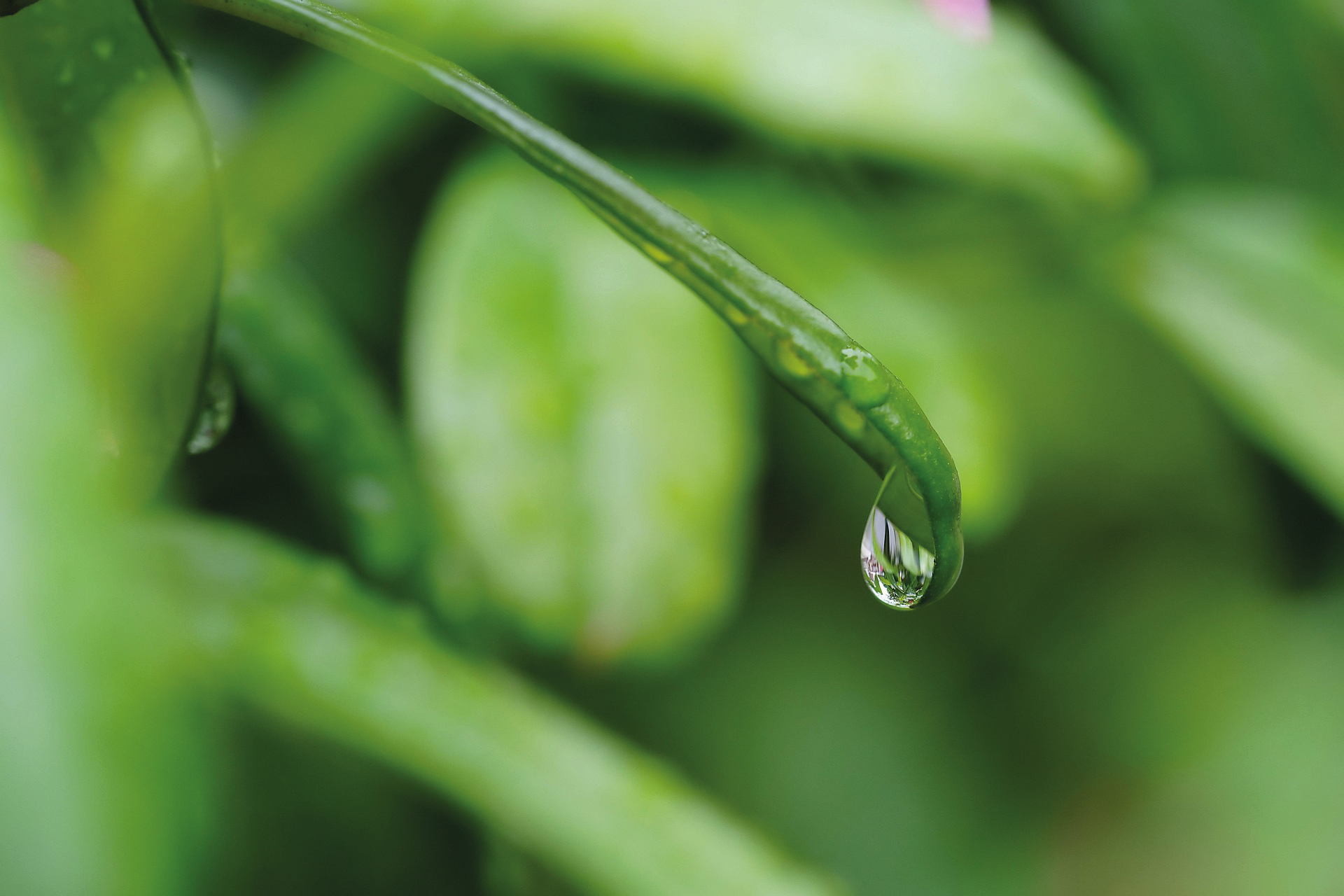
COFRA also takes care of preserving water sources to make human life and the environment sustainable over time. This goal was achieved in 2013 through the construction of a network to collect, feed, and then distribute rainwater, starting from the reservoir and then with pumping systems for secondary use. The water is mainly used for watering green areas, gardens, nurseries, and for flushing toilet bowls and cleaning outdoor areas of roads, squares, and parking lots.
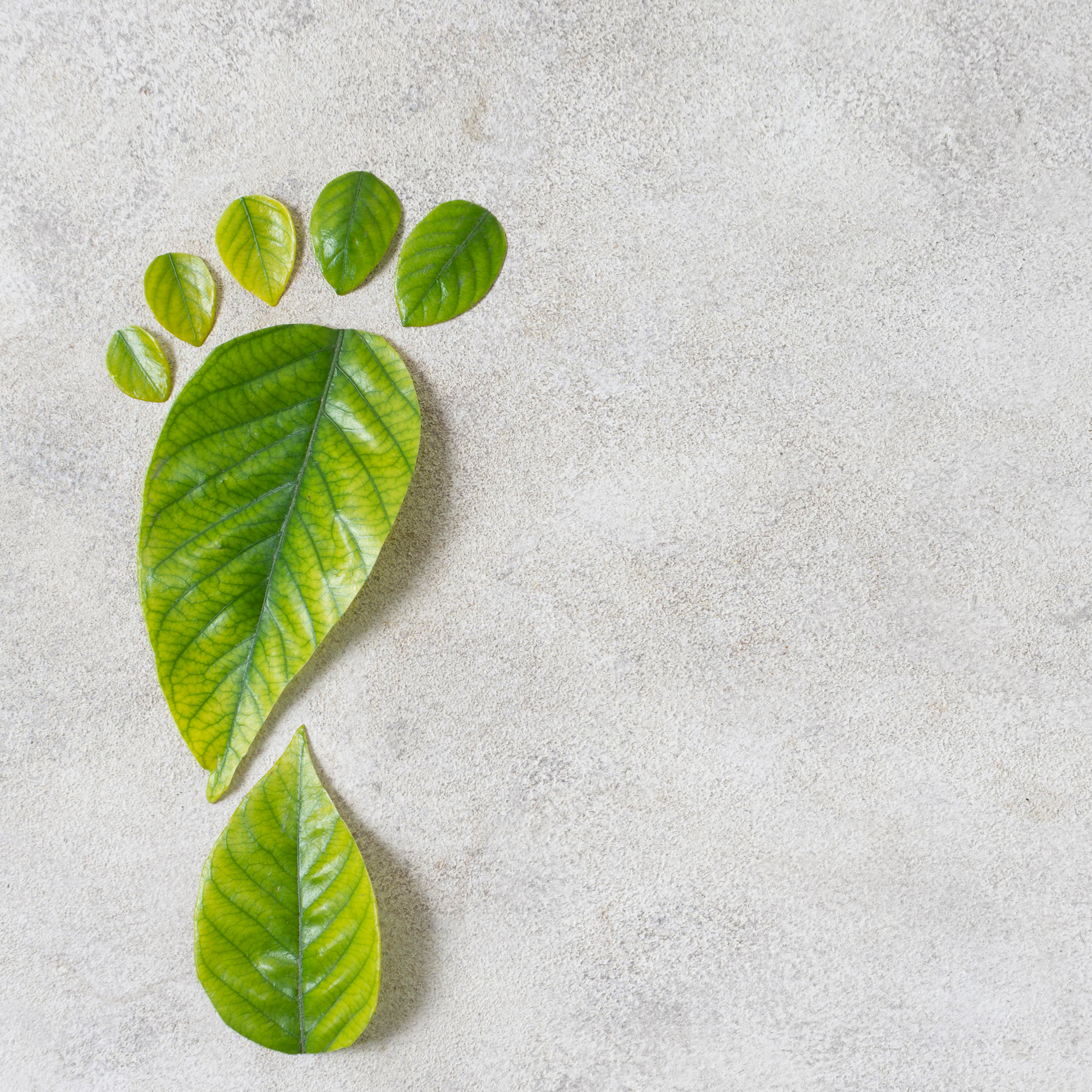
In the company, waste is collected separately in every sector. We replaced our lighting systems with LED installations. In our offices, we only use recycled paper. We welcome our customers and suppliers by serving food and drinks in ceramic and glass containers.

Unlike traditional mini-load automated warehouses, COFRA’s system uses battery-powered robots that consume very little energy, making it highly energy-efficient. The automated warehouse has also allowed us to: - Reduce the use of order pickers by 60% - Decrease warehouse lighting by 20%, as the automated system does not require lighting. These improvements have significantly reduced our energy consumption.
